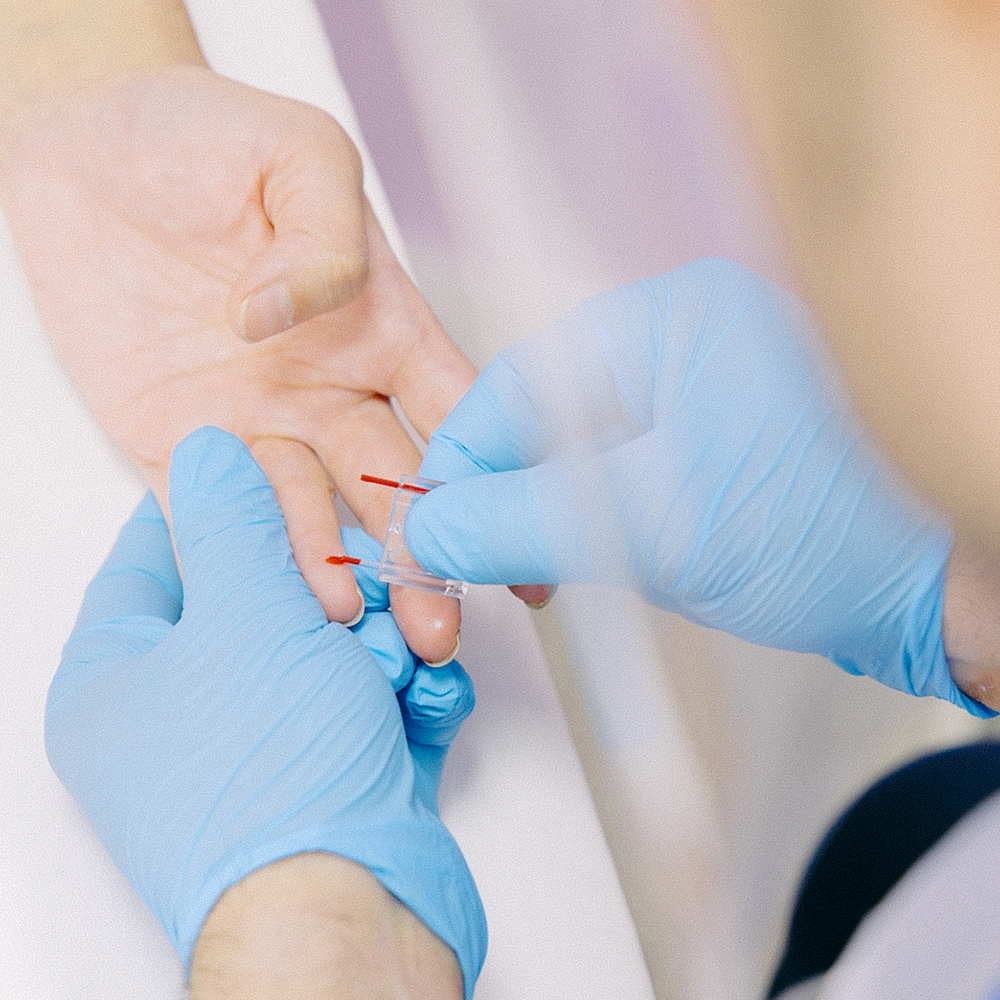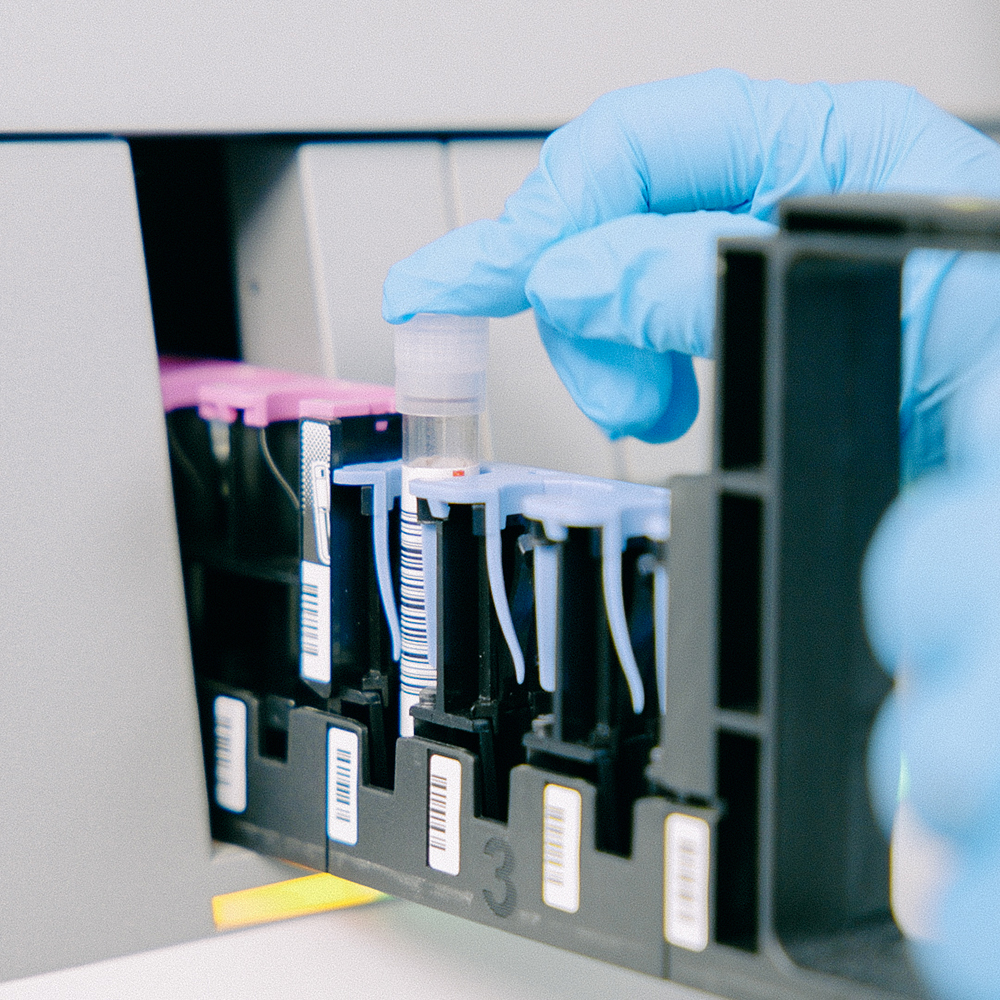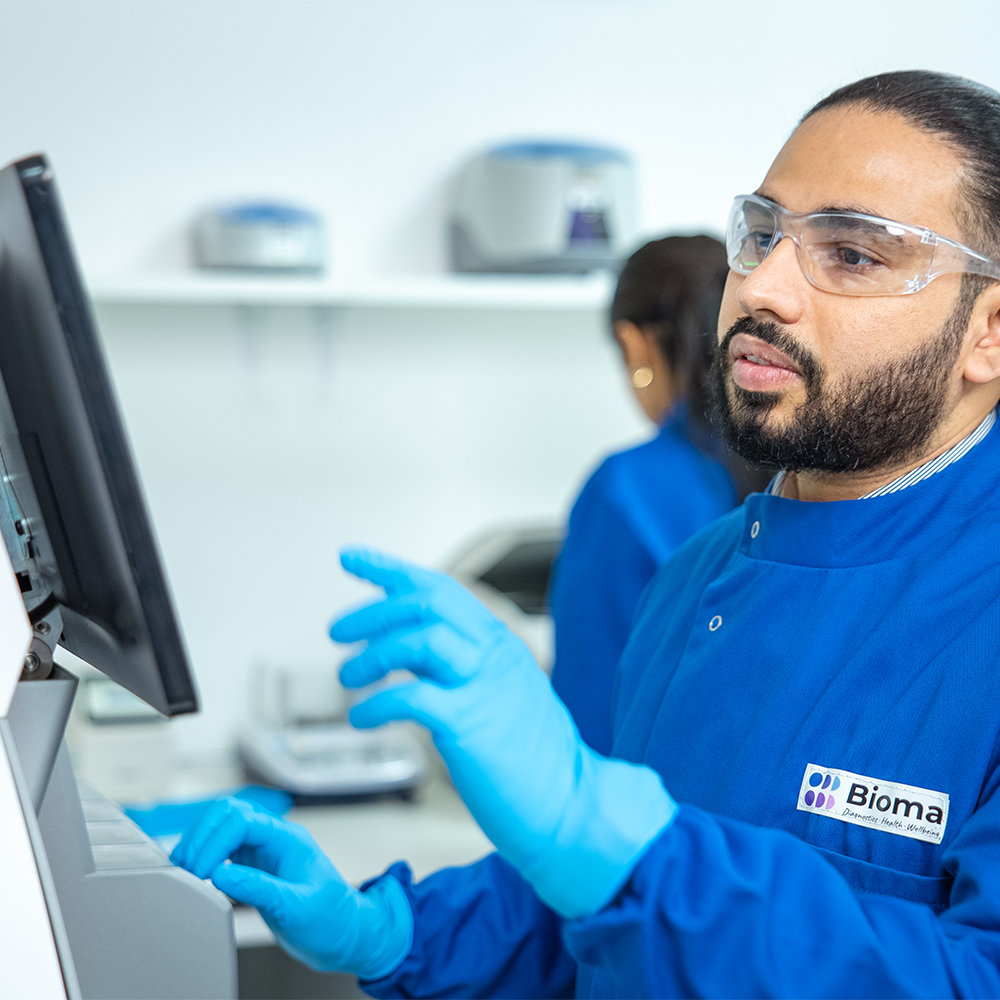Prostate specific antigen (PSA) blood test
£100.00
-
Results within 24 hours
-
Blood draw included
What is a raised PSA level?
PSA is measured in nanograms PSA per millilitre of blood (ng/ml), between the ages of 50 to 69, raised PSA is 3ng/ml or higher.
A raised PSA level may not mean that you have prostate cancer, in fact, some men with normal PSA levels do have the condition, depending individual circumstances, the level of PSA will be assessed and advice will be given regarding on what you should do.
Raised PSA levels can also indicate:
- An enlarged prostate
- Prostatitis
- Urinary tract infection
What can increase risk of prostate cancer?
Causes of prostate cancer, and therefore raised levels of PSA is largely unknown, however, there are certain things that lead to an increased risk of developing the condition.
- Age – The risk gets higher the older you are.
- Family history
- Obesity
- Diet – There is evidence that a high calcium diet is linked to a greater risk of developing prostate cancer.
How accurate is a PSA test?
There is a significant amount of conversation surrounding the effectiveness of PSA tests, it is important to understand both the positive and negatives of these tests. It is possible to attain false-positive results, however, PSA tests can detect aggressive forms of prostate cancer that need treatment, but they can also indicate a slow cancer that may never need treatment or have an extreme threat to life.
Either way it is beneficial to take a blood test as a largely non-invasive test with the added benefit of being able to conduct further investigation and diagnosis if there are any concerns.
What treatments are available for prostate cancer?
Depending on the individual, and the severity of the cancer or results, treatment for prostate cancer can include:
- Radiotherapy
- Hormone therapy
- Cryotherapy
- Chemotherapy
- Radical prostatectomy
- Steroids






